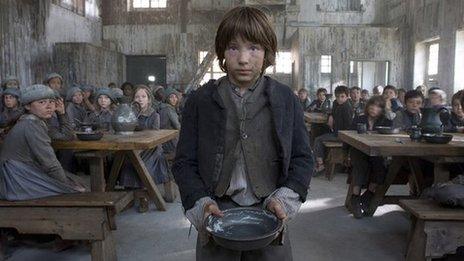Charles Dickens: Publisher made fortune from book imitations
- Published
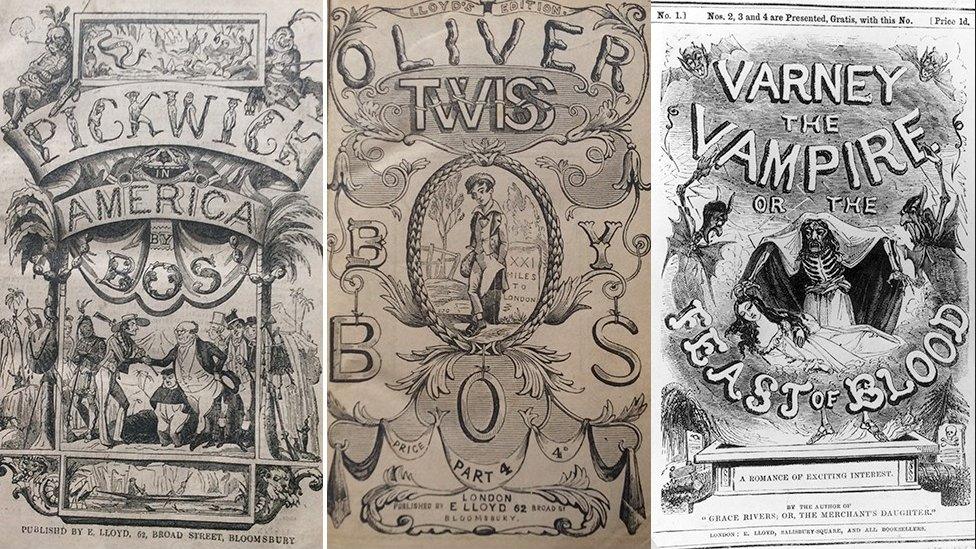
As well as producing parodies of Dickens, Lloyd also published popular horror book Varney the Vampire which is thought to have inspired Bram Stoker's Dracula
A Victorian publisher who made a fortune from imitations of Charles Dickens' novels, which "outraged" the author, is the subject of a new book.
In the 1840s Edward Lloyd published Oliver Twiss, Nickelas Nickelbery and Martin Guzzlewit soon after Dickens wrote the books they were based on.
Prof Rohan McWilliam of Anglia Ruskin University has co-edited the book on Lloyd.
Lloyd also published the first novel featuring the barber Sweeney Todd.
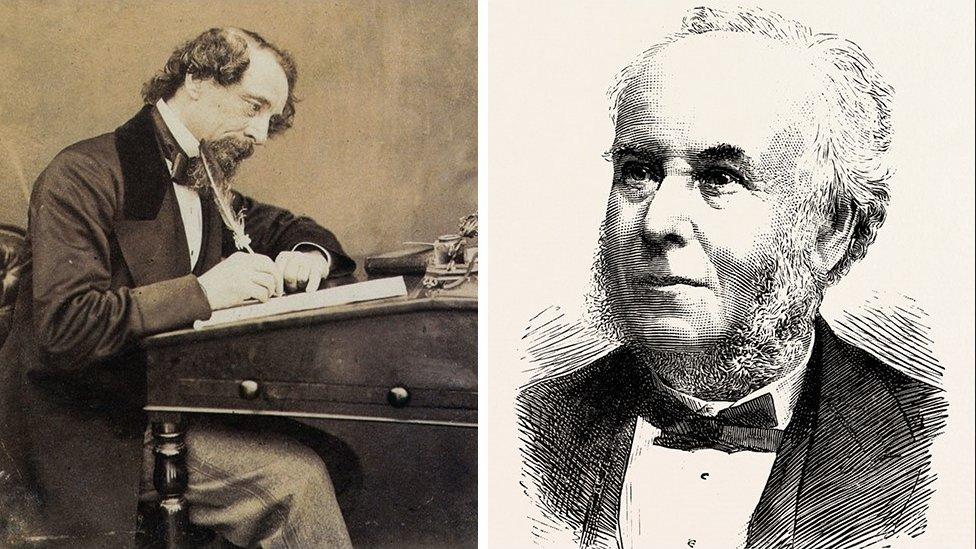
Edward Lloyd (right) published Oliver Twiss, Nickelas Nickelbery and Martin Guzzlewit soon after Dickens (left) wrote Oliver Twist, Nicholas Nickleby and Martin Chuzzlewit
Although the novels were produced quickly to "cash in" on Dickens' soaring popularity, they were not flimsy works with Oliver Twiss longer than the original Oliver Twist, said Prof McWilliam, who specialises in the history of Victorian Britain, and has published Edward Lloyd and His World: Popular Fiction, Politics and the Press in Victorian Britain, co-edited by Sarah Louise Lill.
"Dickens was outraged that other authors and publishers were making money from his creations, but he was unable to get a judge to ban them," he said.
"What's particularly interesting is that many Victorian readers may have first encountered Dickens not through his own work, but through one of these imitations.
"There were many titles produced, which indicate that they were incredibly popular. And in some ways the plagiarisms could be seen as the original form of fan fiction."
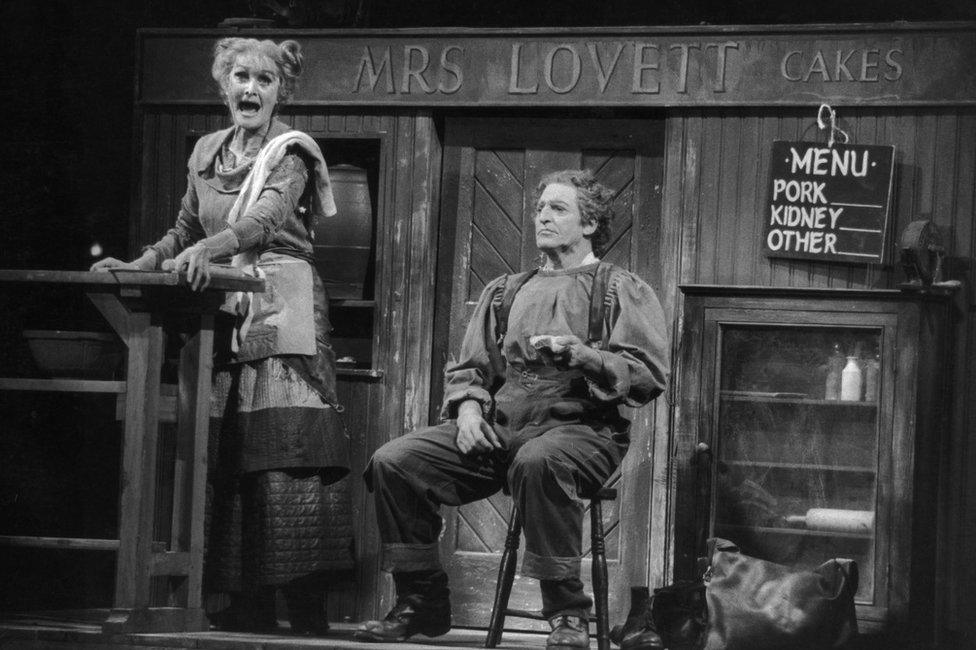
Lloyd also published the first novel featuring the demon barber Sweeney Todd, which was later turned into a musical by Stephen Sondheim
From his publishing house just off Fleet Street, Lloyd helped create the first mass readership for popular fiction by issuing "penny dreadfuls" aimed at working class people including Varney the Vampire, which is thought to have influenced Bram Stoker's Dracula.
Lloyd was also the original press baron - Lloyd's Weekly Newspaper was a Sunday paper aimed at the working class, and went on to become the first newspaper to sell a million copies.
- Published19 December 2018
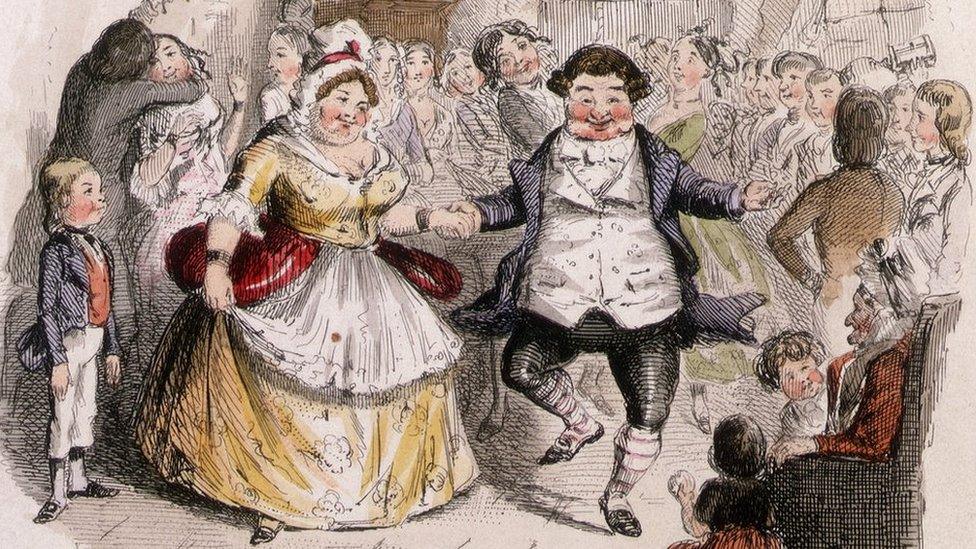
- Published24 December 2017

- Published21 December 2017
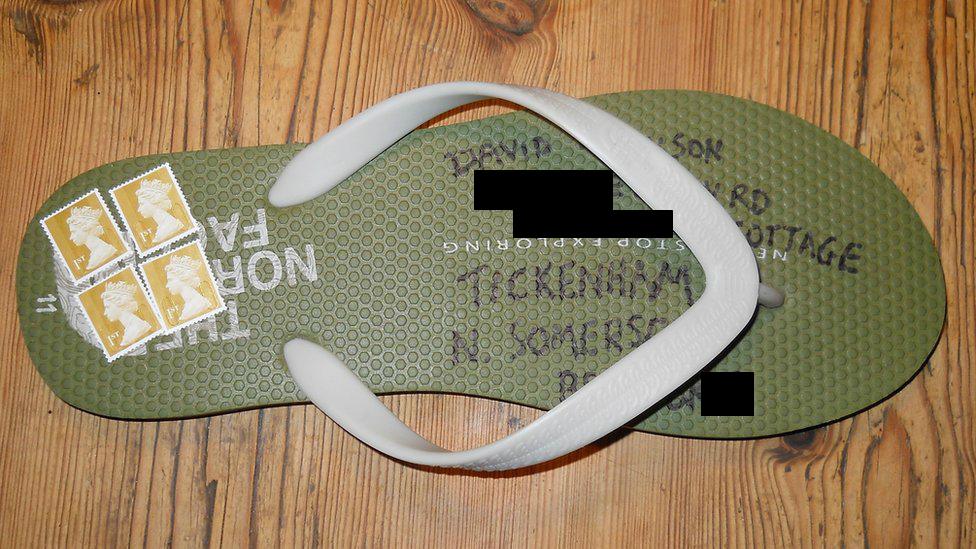
- Published24 December 2016
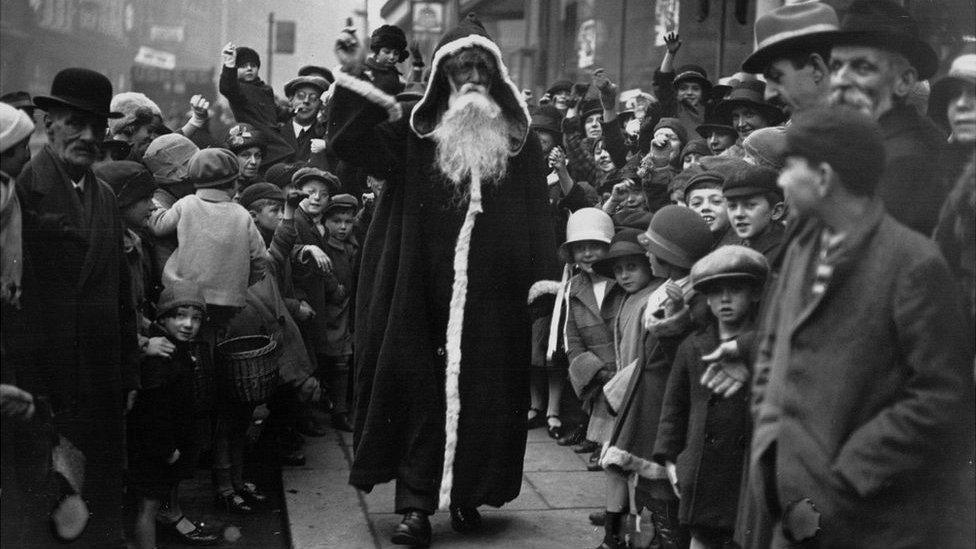
- Published15 December 2011
